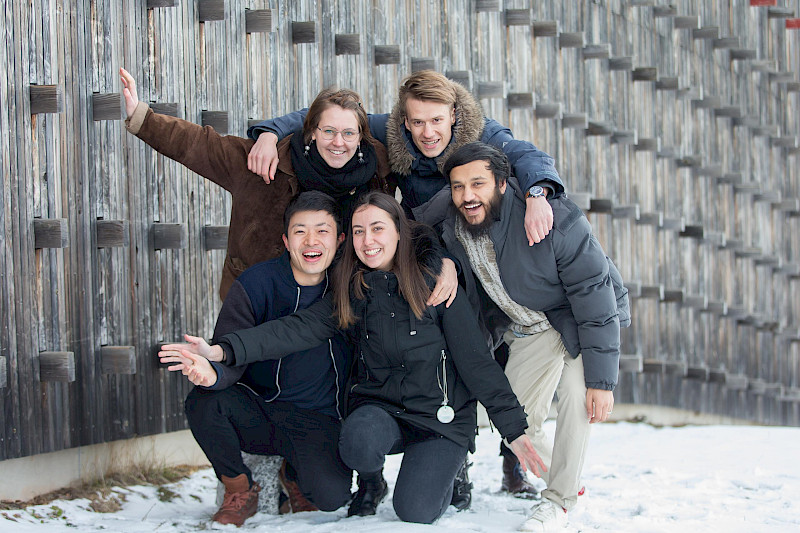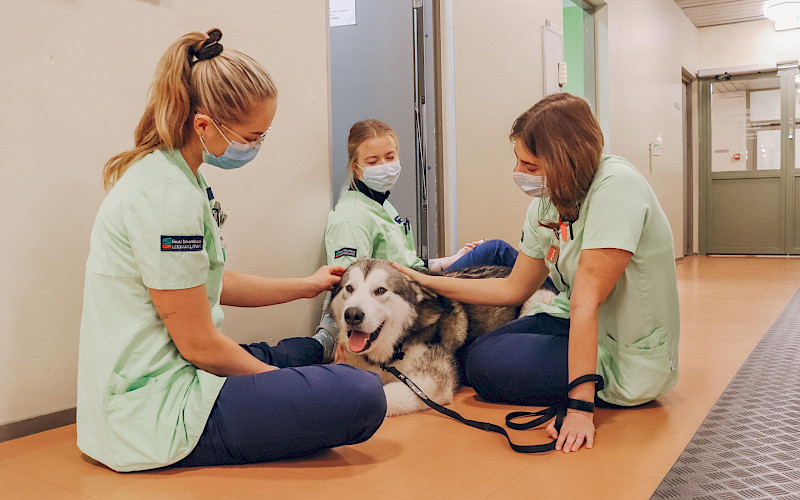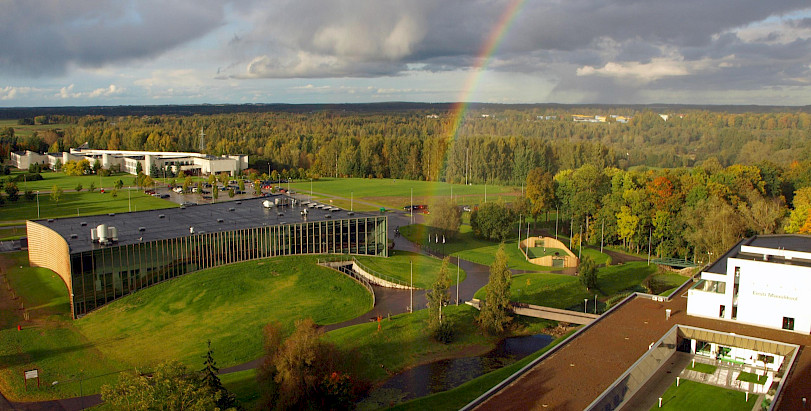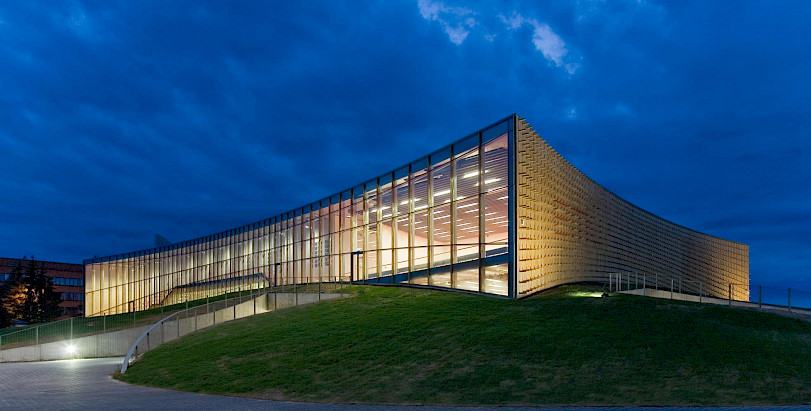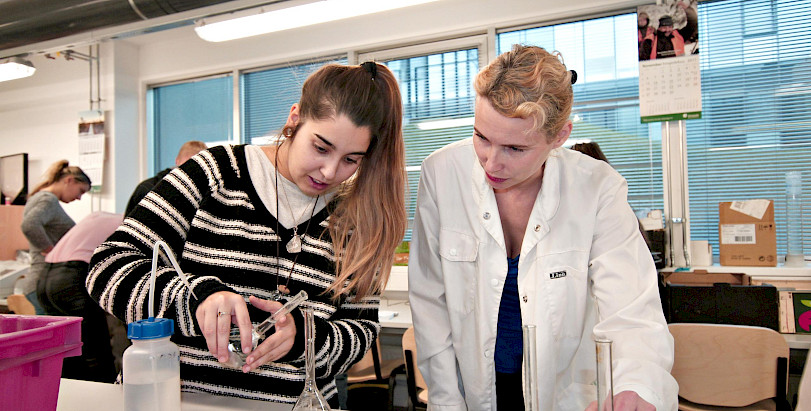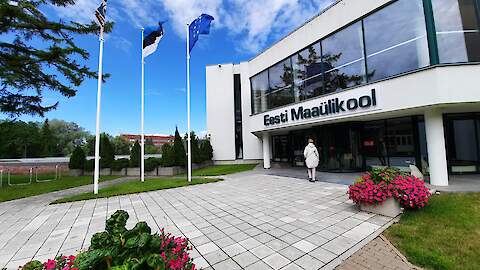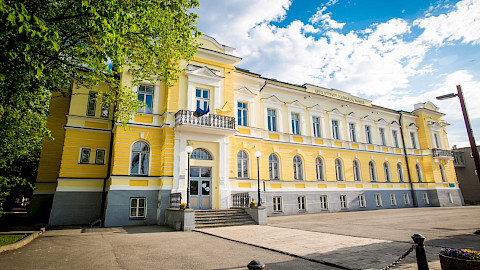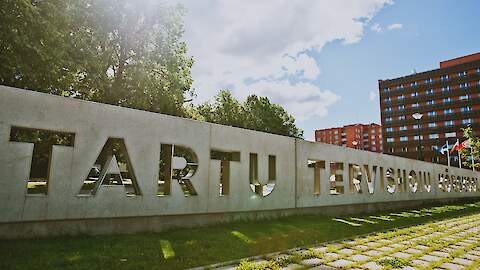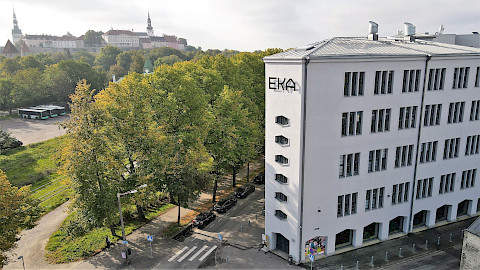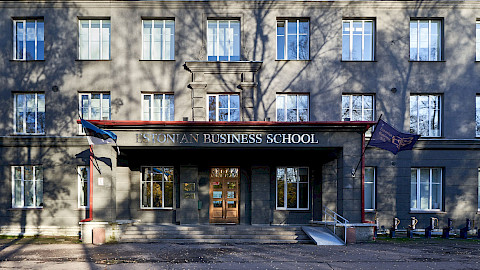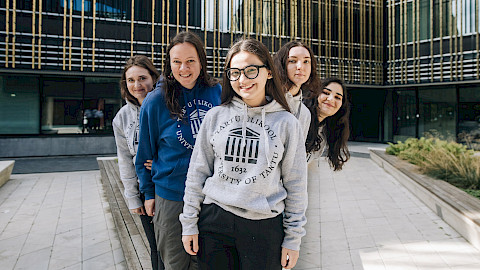- Universities
- Estonian University of Life Sciences

Estonian University of Life Sciences
The responsibility of the Estonian University of Life Sciences lies in the interaction of agriculture and rural management, forestry, environmental sciences, veterinary medicine and animal husbandry, and technical and engineering sciences. The University of Life Sciences creates and shares knowledge to promote the bioeconomy for the benefit of nature and people.
The compact campus has nearly 3000 students and employs nearly 1000 people, half of whom carry out research and teaching at the international level. Our nearly 28,000 alumni value rural core values and shape sustainable and nature-friendly lifestyles.
The Estonian University of Life Sciences is the only university in Estonia that is ranked 45th in the world's top 100 universities (QS World University Rankings by Subject) in its main areas of responsibility - agriculture and forestry. In the Times Higher Education International University Ranking, the University of Life Sciences is ranked among the top 1000 universities in the world, ranging from 801 to 1000. It is also among the top 1% of the world's most cited research institutions in the fields of Plant and Animal Sciences and Environment and Ecology.
The Estonian University of Life Sciences includes 3 institutes - the Institute of Veterinary Medicine and Animal Sciences, the Institute of Agricultural and Environmental Sciences, and the Institute of Forestry and Engineering. Much of our research and teaching is carried out on the 40-hectare campus, where, in addition to the academic buildings and library, one of the most eye-catching sports halls in Tartu and the tallest student union building are within sight. Research and practice bases are also located in the Järvselja study and experimental forest, the Polli Horticultural Research Centre, the Rõhu experimental station, and the Limnology Centre on the shores of Lake Võrtsjärv.
We offer four English-taught curricula at our university. Find out more about the programmes:
- Veterinary Medicine
- Landscape Architecture
- Environmental Governance and Adaptation to Climate Change
- Planning and Analysis in Multifunctional Forestry
Admission to international studies are open from 01.02.2025 in
See more: www.emu.ee/en/admissions
Live presentation recording
Why choose Estonian University of Life Sciences?
Among top 100 in the world
Estonian University of Life Sciences is one of the top 100 universities in the world in the field of agriculture and forestry (QS World University Ranking by Subject).
Practical studies
We put a strong emphasis on practical training in well-equipped labs and workshops on-site as well as in the field.
Friendly learning environment
Our students highly value our friendly staff, small study groups, and the comfortable and compact campus. The university’s dormitory and study buildings are located within 5-10 minutes walking distance.
Green mentality
Our curricula emphasize environmental sustainability. We have ongoing studies on how to produce food without waste; the Green University Initiative; annual mobility contests, etc.
Study abroad
We offer many study-abroad opportunities with a large number of partner universities to our international students.
Integrated Studies
A 6-year-long integrated study that gives the Degree of Veterinary Medicine (DVM).
Why study veterinary medicine at our university?
- green study environment and well-equipped clinics
- curricula have been accredited by the EAEVE
- strong emphasis on practical training, which can be done in the university clinic and in a country chosen by the student
- international student community
- choice between four tracks in the sixth year — small animal medicine, production animal medicine, equine medicine, and food safety
Master's Studies
Our university offers three full English-taught curricula at master's level that cover several areas of life scienes.
A 2-year-long study that gives the degree of Master of Science in Engineering. The aims of the programme are to build on the knowledge, skills, and understanding gained during a bachelor's degree programme in landscape architecture, landscape planning, or related disciplines such as ecology, horticulture, forestry, architecture, or urban planning at the master's level.
A 2-year-long study that gives the degree of Master of Science. A joint curriculum of the Estonian University of Life Sciences and the University of Tartu. The general objective of this curriculum is to prepare middle managers with comprehensive and specific knowledge and practical skills, who, as specialists, are able to take responsibility and make strategic decisions to formulate and implement environmental management and environmental policy at the international level, considering the climate change and the European Green Deal.
A 2-year-long study that gives the degree of Master of Science in Agriculture. The general objective of this curriculum is to prepare leading specialists for planning and analysis in multifunctional forestry, who can take responsibility and make sustainable strategic decisions. The study includes learning about forest policies as well as practical training in companies.
Admission Deadlines 2025
Admission deadlines for Veterinary Medicine
- Non-EU candidates: May 2, 2025
- EU / EEA, Switzerland, Georgian, Ukrainian, UK and Turkish candidates: May 31, 2025
Admission deadlines for Master's programmes
- Non-EU candidates: April 10, 2025
- EU / EEA, Switzerland, Georgian, Ukrainian, UK and Turkish candidates: May 31, 2025
Apply at estonia.dreamapply.com.

